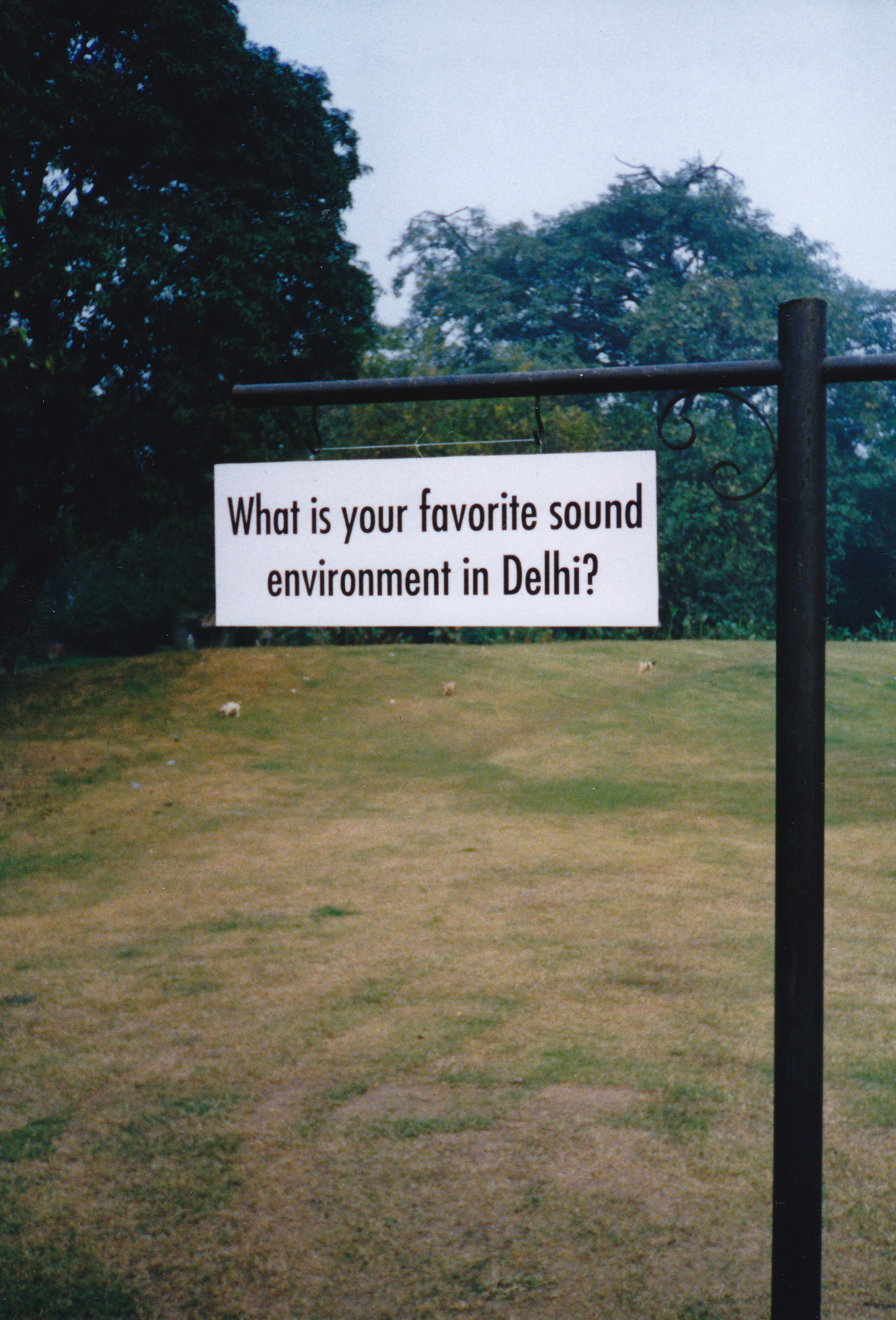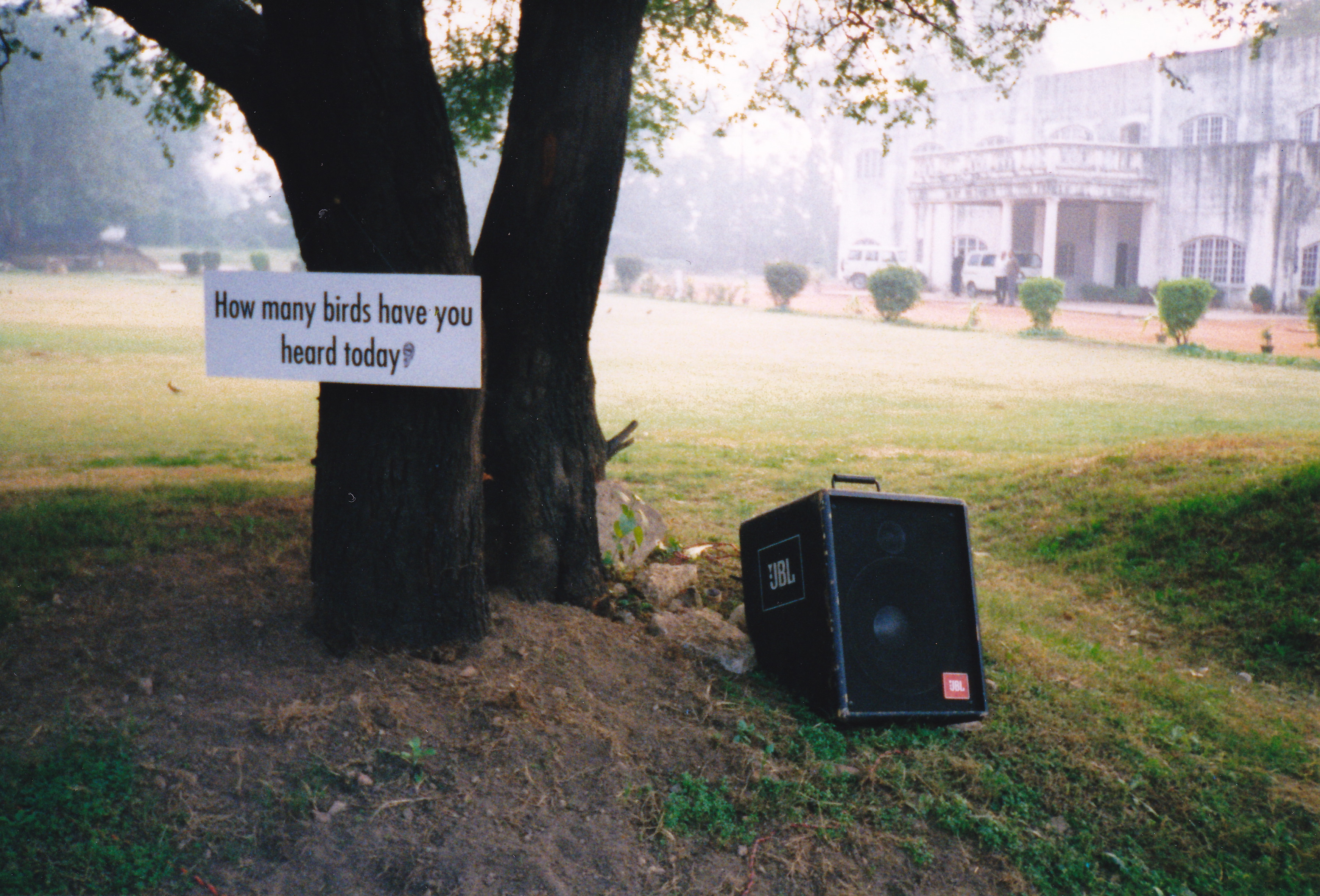What was the first sound you heard this morning?
A simple enough question, but how many of us do 'actually' remember?
Such is our in-ability to re-collect not only the first sound but the entire range of sounds that constitute our everyday life. And even though sound is entering our always-open-ears, the eye has acquired a superior status among all senses.
Assuredly, we are not here to argue for the priority of the ear. However, it is true that with the dawn of the industrial era, people's desires for progress has not only laid waste to much of the landscape but has performed the same act of brutality upon the 'soundscape'. The voices of nature are threatened with extinction by the cacophonous voices of progress.
While ancient cultures relied primarily on sound and listening as their mode of interaction with their environment, our present day urban culture puts emphasis on sight. And it is no wonder that spiritual and religious traditions, the world over, have used sound in multi-farious ways to attain the religious/metaphysical experience.
To experience sound at its point of origin, is to experience it as energy before it becomes split and objectified, to be gained through the gross organs of perception. This underlying, unstruck vibration (anahata), the silent sound, the silence of sound, the silence, thus becomes the source of all vibrations that are meaningful and fulfilling (ahata).
In the cacophony of human-made sound today, the ambient creative force of silence - the anahata- is excluded from perception. The emphasis on outward bound experiences that are consumed through the sense organs , takes humans away from their inner-most being, their origin - from sound in its primal form, the energy of creation. This deadens our capacity to respect or even acknowledge the subtle world of sound.
Yet, the wonderous thing is that it continues to underlie the base of things, ever-ready to open itself up, if we make the slightest attempt to contact it. It is quite amazing that sound which seems to be characterized as outward moving and spreading, has the power to take us back into its source.

So where do we go from here?
how do we begin to restore that which we have only forgotten?
Perhaps the first step is to re-connect
in fact we have to simply start listening
to our world again
Because if we begin to listen (not just hear)
really listen to our soundscape
perhaps our 'taste for sound' will become
refined
Perhaps we will seek 'pure' sound
maybe even the origin of sound
OM

Corlett & Moore: The Hindu Sound, London: Harnish Hamilton Publisher. 1976.





